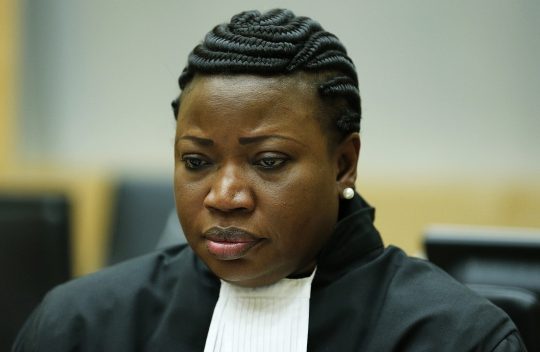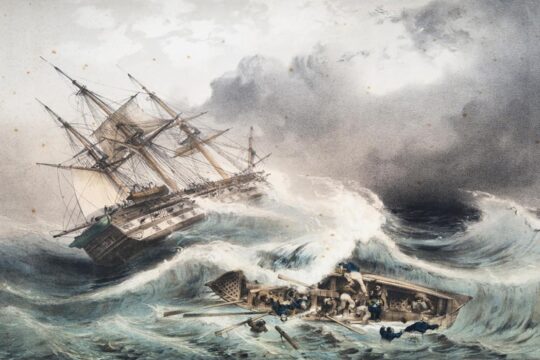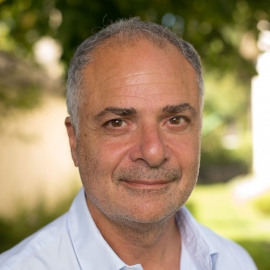JUSTICEINFO.NET: How do you respond to the threat of African leaders pulling out of the International Criminal Court, saying it unfairly targets Africa?
FATOU BENSOUDA: Joining or withdrawing from the ICC is a sovereign decision of a State. The criticism of the ICC targeting Africans is unfair. The ICC is taking cases in Africa not by choice. It was done by referral through the Security Council or through the requests of African States themselves – 5 of them, in fact. It is not the ICC which was running after Africa, it was the other way round.
Your office indicted 7 individuals from Kenya, including the President and Vice-President, but none of these cases were successful. What lessons are you drawing from that?
FATOU BENSOUDA: If you recall, the Defence wanted to acquit and discharge the case of the vice-president of Kenya, Ruto. However, on April 5th this year, the judges decided to vacate the charges on the vice-president. They decided not to acquit. The judges argued that the case has been so much affected by witness interference, witness tampering and politicization of the case, that they cannot rightfully acquit and discharge. Instead, they declared a mistrial. In a way, the judges vindicated the position I have taken as Prosecutor, in denouncing witness intimidation and politicization of the case.
JusticeInfo: Are you expecting Kenya to withdraw from the ICC?
FATOU BENSOUDA: It is the decision of a sovereign State to join or to withdraw from the ICC. From my perspective, as an African committed to the rule of law and to international justice, to withdraw from the ICC is turning our back on the rule of law. It is turning our back on justice and a setback for Africa. I strongly believe that the prime consideration of any government should be the protection of its citizens. And definitely, any government which withdraws from the ICC, it does not go with the protection of its citizens, especially in the absence of any local jurisdiction to take care of these crimes.
JusticeInfo: What is your response to the accusation that the ICC is rendering victors’ justice in Cote d’Ivoire, in Uganda and in the Bemba case?
FATOU BENSOUDA: This criticism is misplaced. Our Court is guided only by the evidence and by the Rome Statutes. On Côte d’Ivoire, I have been very clear: no side of the conflict will escape the scrutiny of my office. In fact, currently, we just announced that the investigation on Côte d’Ivoire ll (editor’s note: Ouattara supporters) has started. We informed the government that we want to pursue our investigation. This being said, it is true that governments engage with my Office not always with the same level of enthusiasm.
JusticeInfo: How do you see the creation of new internationalized tribunals in Kosovo, in Central African Republic, and the African Extraordinary Chambers?
FATOU BENSOUDA: I support any effort to bring justice and accountability. The ICC is a court of last resort. Efforts at the national level are welcome. With respect to the Extraordinary African Chambers, which put on trial the former president of Chad, Hissène Habré, I welcome this development very much. It is sending a very strong signal in Africa: no matter your position, you will be held accountable. This example, which brought justice and accountability for victims, should be replicated.
JusticeInfo: The ICC indicted the President of Kenya, but he was not convicted. The President of Sudan is not arrested. Is it realistic for the ICC to go after sitting heads of state?
FATOU BENSOUDA: No one should fall below the radar, including heads of state and leaders of militias. By their position, they are protected by the state apparatus or by their troops. In such a situation, it is very difficult for a national jurisdiction to be effective. Therefore, the ICC was established by States to prosecute individuals that are unreachable otherwise. I acknowledge it is a difficult task, but it must be done. If we believe that sitting heads of State should receive immunity (editor’s note: as the AU suggested), that will constitute a setback and will bring us back to an era of impunity.
JusticeInfo: The government of Colombia and the FARC are currently negotiating a peace agreement, according to which war criminals will be punished, but without serving prison time. Is it compatible with ICC standards?
FATOU BENSOUDA: We are working closely with the Colombian government. So far, there is indication that justice will not be put aside, but be part of the process. Colombia is trying to achieve peace with maximum justice. This is reassuring. With respect to sentencing, certain parts of the agreement are still being finalized. We raised our concerns and we will continue to closely monitor the peace agreement still in the making.
JusticeInfo: You opened a preliminary examination in Afghanistan and you opened an investigation in Georgia. That means potentially, Americans and Russian citizens could be prosecuted for international crimes…
FATOU BENSOUDA: Afghanistan is still at a preliminary examination, but we are moving fast. With respect to Georgia, I was authorized by the Chambers to open an investigation. We are looking at all parties including Russia, South Ossetia and Georgia. I want to emphasize we are not targeting any individual or any nationality. We collect the evidence and then we determine if this person, no matter their nationality, will be brought to the Court.
JusticeInfo: Israel is not part of the ICC, but recently opened a dialogue with your office. Are you going to open an investigation?
FATOU BENSOUDA: When I opened a preliminary examination on Israel and Palestine, I invited all parties to cooperate with my office. This is happening now. I have to analyze this information with the view to make a determination either way, to open, or not to open an investigation. I need to look at the issue of the nature of crimes according to ICC Statutes, where they have been committed, the gravity of those crimes. I need also to look at the issue of complementarity and the interests of justice. It’s what I’m doing.
JusticeInfo: What lessons have you learned as a Prosecutor?
FATOU BENSOUDA: I learned a lot. I want to make the ICC a more efficient machinery. I want us to be trial-ready as soon as possible. I want to make sure that our evidence is solid before bringing it to the judges. That necessitates more in-depth investigations. I have also taken into account the vulnerability of the witnesses and the interference of different actors. That is why we are now looking for hard evidence and not only concentrating on the human element. Regarding our strategy, we are not going right away to the most responsible individuals, but building our case slowly, starting with mid-level perpetrators and then going upward.
JusticeInfo: Were you expecting such degree of politicization and political pressures on you?
FATOU BENSOUDA: I’m not sure that we expected such degree of politicization, but we need to confront fully this challenge. The office was set up with the agreement of States to support this institution. States voluntarily ratified the Rome Statute and became part of the ICC, with the obligation to support, cooperate and execute the decisions of the Court. However, we have seen that this is not always the case. States have put political interests above their obligations to cooperate with the ICC. For instance, States Parties to the ICC should have arrested and surrendered the president of Sudan, Omar el Bashir, to the ICC. But this didn’t happen. The ICC is independent, but can function effectively only through the support and the obligations of the States. In the final analysis, it is the Court of the States Parties. They established the ICC, and they should continue to support it.
MORE VIDEO EXCERPTS
On our Youtube channel, 5 short videos from our interview with Fatou Bensouda (click on this link).







